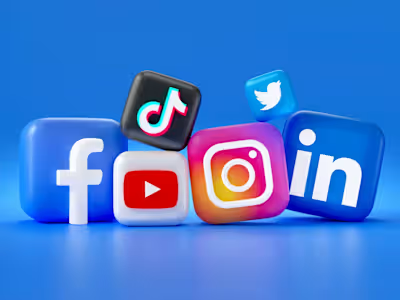Digital marketing
Digital marketing encompasses all marketing efforts that use the internet and electronic devices to connect with potential customers. It’s a broad field that includes various strategies and channels to promote products or services online. Here are the main components:
1. Search Engine Optimization (SEO)
Definition: The practice of optimizing a website to rank higher in search engine results, making it more visible to users searching for relevant keywords.
Key Techniques: Keyword research, on-page optimization, technical SEO, and link building.
2. Content Marketing
Definition: Creating and distributing valuable content to attract and engage a target audience.
Formats: Blog posts, videos, podcasts, infographics, e-books, and webinars.
Goal: Build trust and establish authority in your niche.
3. Social Media Marketing
Definition: Using social media platforms to promote products or services, engage with customers, and build brand awareness.
Platforms: Facebook, Instagram, Twitter, LinkedIn, TikTok, and Pinterest.
Strategies: Regular posting, targeted ads, and engaging with followers.
4. Email Marketing
Definition: Sending targeted messages to a group of subscribers to nurture leads, promote products, and build relationships.
Key Practices: Building an email list, segmenting audiences, and personalizing content.
5. Pay-Per-Click (PPC) Advertising
Definition: A model of internet marketing where advertisers pay a fee each time their ad is clicked.
Platforms: Google Ads, Bing Ads, and social media advertising.
Goal: Drive traffic and conversions quickly by targeting specific keywords and demographics.
6. Affiliate Marketing
Definition: A performance-based marketing strategy where businesses reward affiliates for driving traffic or sales through their marketing efforts.
Structure: Affiliates promote products using unique links and earn commissions on sales generated.
7. Influencer Marketing
Definition: Partnering with influencers—individuals with a significant following—to promote products or services.
Benefits: Leveraging the influencer’s credibility and reach to target specific audiences.
8. Analytics and Data Analysis
Importance: Tracking and analyzing data to understand user behavior, campaign performance, and ROI.
Tools: Google Analytics, social media analytics tools, and A/B testing platforms.
9. Conversion Rate Optimization (CRO)
Definition: The process of enhancing a website or landing page to increase the percentage of visitors who complete a desired action (like making a purchase or signing up).
Methods: A/B testing, improving user experience, and optimizing call-to-action buttons.
Conclusion
Digital marketing is dynamic and constantly evolving, requiring businesses to stay updated on trends and technologies. By leveraging a combination of these strategies, companies can effectively reach their target audience, enhance brand visibility, and drive sales.
Like this project
Posted Oct 20, 2024
all about how digital marketing works.







